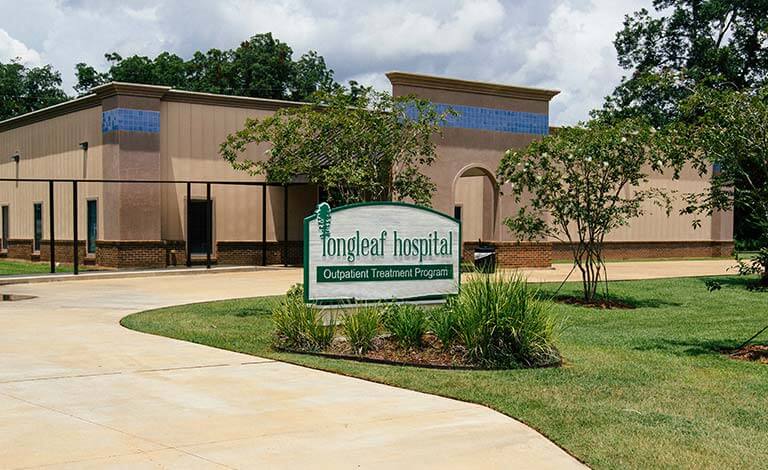Methamphetamine, which is often referred to simply as crystal meth or simply meth, is a powerful and dangerous stimulant that can have a devastating impact on the physical and psychological wellbeing of individuals who abuse it.
Understanding Meth Addiction
Learn about meth and substance abuse
Meth typically appears as a powder or a pill, and can be abused by being swallowed, snorted, smoked/inhaled, or injected. When a person ingests methamphetamine, he or she will typically experience intense euphoria and a powerful surge of energy. The intensity of these pleasurable effects, combined with the powerful crash that can occur when they subside, can prompt individuals to ingest multiple doses of methamphetamine, or binge on the drug, in order to stay high for days at a time.
Meth abuse can quickly lead to addiction, which is characterized by both tolerance and withdrawal. Tolerance means that as a person’s body adapts to the presence of meth, he or she will require larger or more potent doses in order to achieve the desired effect. Withdrawal means that in the absence of methamphetamine, the individual will rapidly begin to experience a variety of distressing physical and psychological symptoms.
The combination of tolerance and withdrawal can push a person into a dangerous downward spiral of meth abuse, involving increasingly larger doses and more frequent abuse of this drug. Given methamphetamine’s ability to inflict considerable physical and psychological harm, addiction to this dangerous stimulant can put a person at continued risk for a wide range of negative outcomes, including death.
Meth addiction can be extremely difficult to overcome without effective professional treatment at a clinic, hospital, or other treatment center. However, with proper treatment, you can end your dependence upon methamphetamine and make the lifestyle changes that will empower you to successfully pursue a healthier future, free from the constraints and limitations of meth abuse.
If you or someone that you care about has become ensnared in methamphetamine abuse and addiction, please know that help is available and treatment can put you on the path to recovery.
Statistics
Meth addiction statistics
The National Institute on Drug Abuse (NIDA) estimates that about 1.2 million Americans have abused methamphetamine at least once in the previous 12 months. This means that about 0.4% of the U.S. population has abused meth in the past year. NIDA data also indicates that about 440,000 Americans have engaged in methamphetamine abuse at least once in the previous 30 days. The Drug Abuse Warning Network (DAWN) documented 103,000 meth-related visits to hospital emergency rooms in 2012, which represented a significant decrease from the 132,000 meth-related ER visits that DAWN recorded in 2004. However, DAWN notes that meth remains the fourth-most common illicit drug whose abuse sent individuals to the ER in the United States, trailing only cocaine, marijuana, and heroin.
Causes and Risk Factors
Causes and risk factors for meth addiction
As is the case with all types of substance use disorders, a person’s risk for abusing and becoming addicted to methamphetamine may be influenced by a variety of factors, typically acting in combination. The following are among the more common factors that can raise a person’s risk for developing stimulant use disorder, which is the clinical term for addiction to stimulants such as methamphetamine:
Genetic: Having a family history of stimulant abuse and addiction can increase a person’s likelihood for developing a similar problem, especially if the afflicted family member is a parent or sibling. As genetic technology continues to improve, researchers have identified certain genes and gene clusters that appear to be associated with a person’s risk of developing a substance use disorder, though they have not yet established definitive cause-effect relationships.
Environmental: Exposure to meth or other stimulants at a young age or even in utero can significantly increase a person’s risk for abusing and becoming addicted to these substances. Childhood adversity, including growing up in an unstable or otherwise chaotic environment, can also raise a person’s risk for meth abuse and addiction. Associating with peers who abuse meth is also a powerful environmental influence.
Risk Factors:
- Family history of mental illness, substance abuse, and/or addiction
- Personal history of mental illness and/or prior substance abuse
- Personal history of childhood adversity, violence or other type of trauma
- Impulsivity
- Exposure to meth at a young age
- Peers who sell or use methamphetamine
Signs and Symptoms
Signs and symptoms of meth addiction
Abusing and becoming addicted to methamphetamine can have a drastic impact on a person’s appearance, thoughts, and actions. Depending on the nature and severity of a person’s involvement with meth, he or she may exhibit the following signs and symptoms:
Behavioral symptoms:
- Acting with uncharacteristic energy and apparent lack of need for sleep
- Poor performance and frequent absences from school or work
- Engaging in obsessive repetitive behaviors
- Secrecy and/or deceptiveness regarding activities and whereabouts
- Attempting to borrow or steal money
- Trying but failing to stop abusing meth
- Continuing to abuse meth after experiencing negative effects from prior use
- Prioritizing the acquisition and use of meth over personal or professional responsibilities
Physical symptoms:
- Poor hygiene
- Increased heart rate
- Insomnia
- Scabs and sores
- Damage to teeth and gums
- Lack of appetite and resultant weight loss
Cognitive symptoms:
- Poor judgment
- Impaired memory
- Lack of appropriate decision-making skills
- Confusion and disorientation
- Hallucinations and delusions
Psychosocial symptoms:
- Dramatic mood swings
- Agitation
- Paranoia
- Irritability
- Social withdrawal
Effects
Effects of meth addiction
A person who abuses and becomes addicted to methamphetamine, but who fails to receive effective treatment at a residential program or clinic, may be at increased risk for myriad negative outcomes, including but by no means limited to the following:
- Strained or ruined interpersonal relationships
- Family discord
- Academic failure
- Job loss and chronic unemployment
- Diminished bone density
- Weakened immune system
- HIV/AIDS, hepatitis B or C, and other blood-borne pathogens
- Cognitive impairments
- Physical harm due to reckless behaviors related to meth abuse
- Legal problems, including arrest and incarceration
- Financial distress
- Social withdrawal and isolation
- Suicidal thoughts or actions
Co-Occurring Disorders
Meth addiction and co-occurring disorders
A person who develops a stimulant use disorder involving methamphetamine may also be at increased risk for the following co-occurring mental health disorders:
- Bipolar disorder
- Other substance use disorders
- Posttraumatic stress disorder (PTSD)
- Antisocial personality disorder
- Schizophrenia
- Attention-deficit/hyperactivity disorder (ADHD)
- Gambling disorder
Withdrawal & Overdose
Effects of meth withdrawal and overdose
Effects of meth withdrawal: When a person becomes addicted to methamphetamine, attempting to stop or significantly curtail the abuse of this drug can trigger the onset of a variety of painful withdrawal symptoms, including but not limited to the following:
- Powerful cravings for meth
- Nausea, vomiting, and diarrhea
- Extreme fatigue
- Depression
- Anxiety
- Psychomotor agitation or retardation
- Agitation and irritability
- Insomnia or hypersomnia
- Intense nightmares
- Paranoia
Effects of meth overdose: Anyone who exhibits the following signs after ingesting methamphetamine may have overdosed and should be brought to the immediate attention of an emergency responder or other qualified healthcare provider:
- Difficulty breathing
- Elevated body temperature
- Increased heart rate
- Unconsciousness
- Coma
- Cardiac arrest
- Seizure
- Stroke












